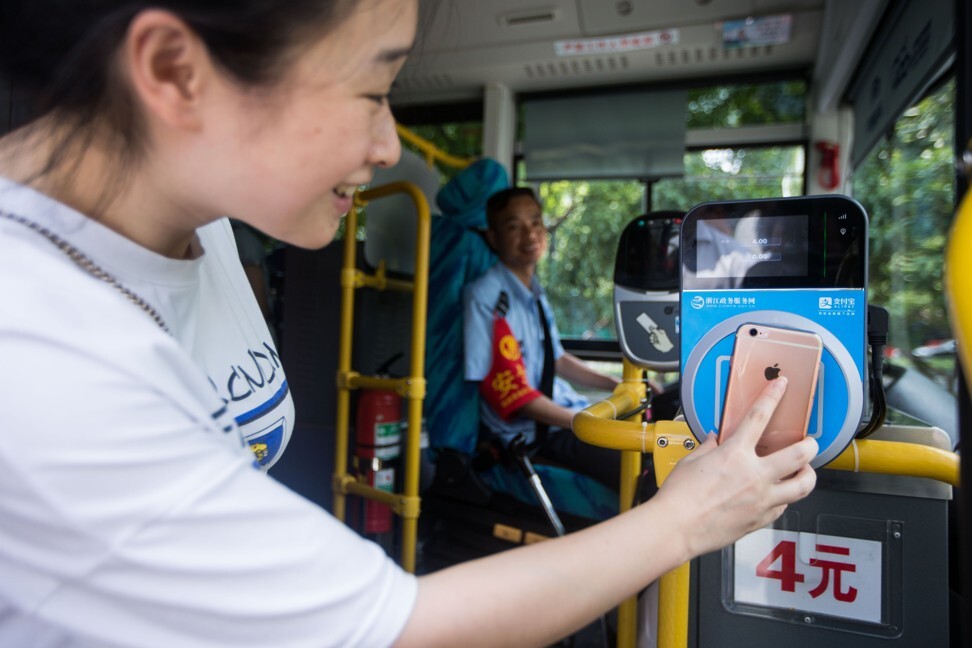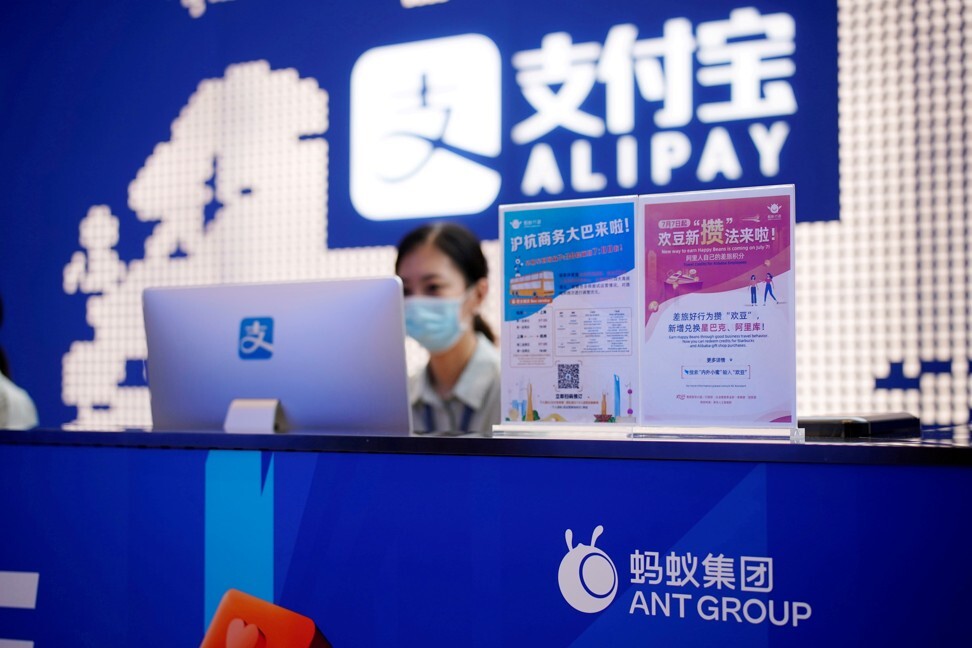
Investors, both big and small, anxiously waited on Thursday to find out whether they would be one of the lucky ones to win a golden ticket for a piece of Jack Ma’s Ant Group in the biggest initial public offering in history.
Even though Hangzhou-headquartered Ant is set to raise a jumbo US$34.5 billion in its dual listing, it won a waiver to sell only 11 per cent of the company, divided equally between Hong Kong and Shanghai, creating a shortage of stock. Public market debutants usually have a free float of at least 25 per cent.
Investors are scrambling to own a slice of the fast-growing digital finance platform. For index trackers, Ant will represent around 40 per cent of Shanghai’s Star Market and roughly 5.5 per cent of Hong Kong’s market capitalisation. The retail tranche in Hong Kong was more than 90 times oversubscribed as of Thursday morning.
Ant’s IPO values the company at US$313 billion, which could rise to US$318.50 billion including an overallotment option, making the fintech unicorn more valuable than the world’s biggest bank, JPMorgan Chase or the economy of South Africa. The operator of the super-slick mobile payment app Alipay is expected to make its public markets debut on November 5.
Ant’s IPO will push Shanghai’s fledgling Star Market into third place globally in terms of new offerings and secondary listings this year, on par with the 228-year-old New York Stock Exchange (NYSE).
Ant’s underwriters closed the book for global institutional investors placing orders for Hong Kong shares in all regions on Thursday local time, a day earlier than expected because of the overwhelming demand, according to people familiar with the matter.
The offering was many times oversubscribed within an hour of opening on Monday, but investors will not learn how many shares they own until later this week, the people said.
Ant has the opportunity of designing a dream-team shareholder registry. It wants to ensure strong aftermarket performance, balanced with creating a liquid stock.

Ant, which will be worth more than the combined market capitalisation of Bank of New York Mellon, Goldman Sachs, Morgan Stanley and Wells Fargo, is favouring investors who were early backers of the 16-year-old firm.
Ant also prefers investors likely to hold the stock for the long term, and are passive, such as pension funds, life insurers and sovereign wealth funds. Singapore’s GIC and Temasek, the Abu Dhabi Investment Authority, and the Canada Pension Plan Investment Board have already secured a chunk of shares in the Shanghai tranche of the offering. Traditionally, Shanghai-listed stocks trade at a premium to Hong Kong-listed stocks.
Some of the planet’s largest institutional investors, Maryland-headquartered T. Rowe Price, Boston-based Fidelity and Edinburgh-based Baille Gifford, are at the front of the queue for Ant’s Hong Kong shares, said the people familiar. T. Rowe, Fidelity and Baille Gifford were early shareholders in Ant and are also major backers of Alibaba Group Holding which owns a third of Ant, as well as the South China Morning Post.
Ant and its advisers were having tough conversations with other investors, preparing them for smaller allocations of Hong Kong shares than they had requested.
Overseas investors piled into Hong Kong ahead of the Ant IPO and other big listings, illustrated by the more than HK$383.51 billion (US$49.49 billion) that has flowed into the city since April, forcing the city’s de facto central bank to intervene more than 85 times in currency markets to try to weaken the Hong Kong dollar this year.
01:12
Ant Group poised to be world’s biggest private firm making public debut, with Hong Kong-Shanghai IPO
On Thursday, the Hong Monetary Authority (HKMA) intervened in the foreign exchange market again, to the tune of HK$3.18 billion, after buying HK$4.65 billion on Wednesday. On Tuesday, when retail investors could first subscribe to the Ant shares in Hong Kong, the city’s de facto central bank had intervened twice by selling a combined HK$31.8 billion, the highest amount on a single day this year.
The aggregate balance, a measure of cash in the city’s banking system, reached HK$457.46 billion on Wednesday, the highest on record and more than eight times its level before the HKMA began intervening in the currency markets in April.
Several thousand investors are competing for a piece of Ant in the offshore institutional tranche. Some have massively inflated their orders in a bid to maximise their chances of winning an allocation of the “must own” stock, knowing their orders would likely be scaled back, according to the people familiar.
This has created a “headache” for book runners on the deal, with the top 10 biggest orders covering the entire book, the people familiar said.
Hong Kong property developer and wet market manager Wang On Group said on Thursday it had pledged HK$160 million for 2 million shares via Morgan Stanley.
“After taking into account the business prospects, financial performance and potential growth of Ant Group, the directors consider that the subscription is in alignment with the group’s principal activities of carrying out investment in securities and will enable the group to diversify its investment portfolio and capture possible investment returns,” said Thomas Chan Chun-hong, managing director of Wang On Group in a filing to the local exchange.

In technology IPOs globally, typically 50 per cent to 60 per cent of stock allocations typically go to 25 or fewer institutional investors, such as Fidelity, Capital Group and Wellington Management, according to senior bankers who arrange such deals.
In Alibaba, the top 25 investors own roughly half of the free float of shares, calculated one banker. Of the roughly 150 major accounts Alibaba and its advisers had targeted for Alibaba’s float on the NYSE, 99 per cent bought a chunk of stock.
After the IPO, around 77 per cent of Ant’s shares will be held on the mainland, so if they are sold in the future, it would likely be in Shanghai.
Given the company’s growth trajectory, the people familiar expect most investors to hold onto their stock, giving rise to concerns that trading activity will be subdued and the stock will be relatively illiquid in Hong Kong.
So international investors who do not have access to the mainland markets are worried there will be few opportunities further down the line to top up their holdings, piquing their anxiety to secure a piece of Ant now at an IPO discount to fair value.
Financial professionals are expecting to see a lot of derivative instruments pegged to the stock as a proxy for share ownership.
The level of demand for Ant by retail investors in Hong Kong triggered a mechanism to make more shares available for them, with about 10 per cent of the 1.67 billion shares being offered in the city going to small investors. As interest spiked in recent days, banks and brokers in the city offered a record level of margin loans to retail investors – almost HK$300 billion.

Co-hosting the world’s biggest IPO is a badge of honour for the Star Market, which was launched last year as part of Chinese President Xi Jinping’s plan to fund the growth of mainland Chinese technology firms at home.
Some of the biggest names in Chinese technology, including Alibaba Group Holding, JD.com and NetEase, first listed their shares in the US, before pursuing secondary offerings in Hong Kong in the past 11 months. Ant is an affiliate of Alibaba, the parent of the Post.
After Ant’s IPO, the Star Market will be tied for third place globally with the NYSE, behind New York’s Nasdaq and the Hong Kong stock exchange, according to data from Refinitiv. Founded in 1792, the venerable NYSE is still the largest stock exchange in the world in terms of value of companies traded.
Investment banking boutique Ampere Partners is serving as Ant’s financial adviser. CICC, Citigroup, JPMorgan and Morgan Stanley are sponsors and book runners of Ant’s Hong Kong share sale. Credit Suisse, and CCB International are acting as joint global coordinators and joint book runners.
Additional reporting by Enoch Yiu
From our archive







